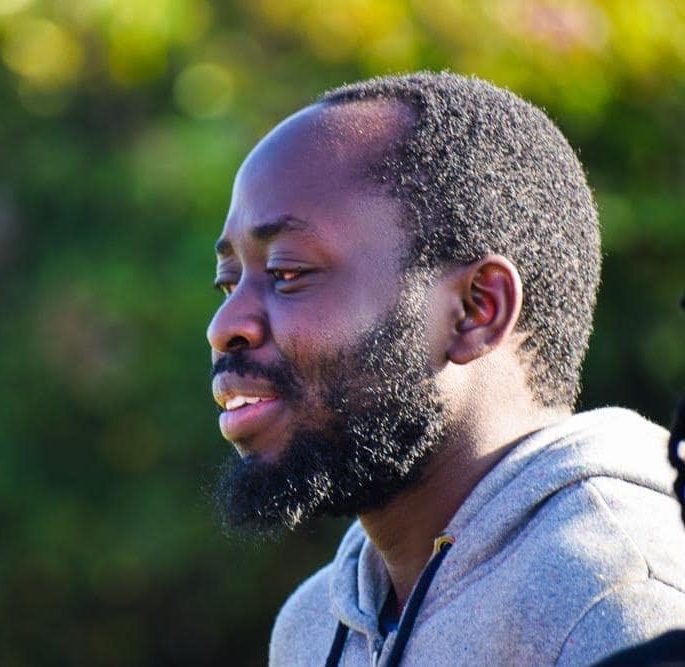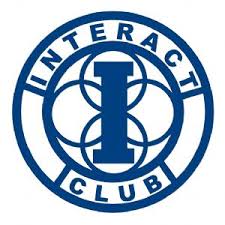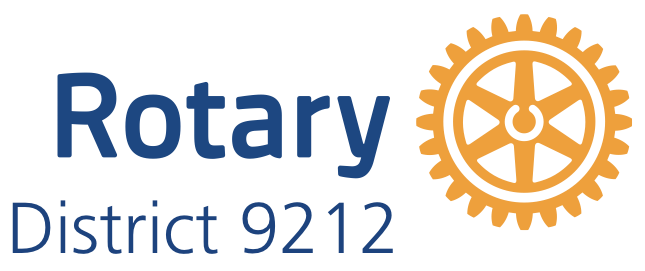Meet Emmanuel George Otieno -The District Rotaract Representative-Elect

Kindly introduce yourself.
My name is Emmanuel George Otieno. I am a son, grandson, nephew, brother, father and uncle! On the side I’m a tech professional, designer, volunteer and occasional karaoke singer. I love to drink water, and when I was five, I got in a fight with a ram, where our chosen weapons were our heads. But that, despite explaining a lot, is a story for another day.
What do you do Professionally?
Simply put, I am a techie specializing in user interface design. I currently work with AfroCloud Technologies where I customize and manage eLearning platforms, and work on content development, technical sales, and account management.
I am responsible for managing the client from the moment they walk in, until they (hopefully never) leave. I have a passion for education and its innovation, which led to me being a perfect fit for the AfroCloud Team.
What is your role in District Rotaract 9212?
I am currently the Chair of the Rotaract District 9212 Strategy and Planning Committee, where I am responsible for implementation and constant modification of the District Strategy that offers guidance to clubs on their direction, and that of the district as a whole.
Further, I am also the District Rotaract Representative-Elect. This particular role entails learning the ropes from the current District Rotaract Representative as I set up a firm foundation, strategy and team with which I will serve in the next Rotary year.
Tell us about your background in Rotaract.
I joined Rotaract while in campus, at Multimedia University, where I served rather cluelessly as International Service Director, then President. After I completed school, I wanted a new and interesting Rotaract environment. So a bunch of interesting peeps from a couple of universities around Nairobi came together and we chartered the Rotaract Club of Langata- ‘Wazzur?!’ where I am the Charter President.
What are the employable skills that you gained through Rotaract?
- Project management: Without a doubt, I’ve learnt to plug into a project at whatever phase and see it through with a level head. I’ve learnt to communicate, manage and meet expectations, bring people together to contribute towards a common goal, and follow the lead of a leader because it is not can be quite difficult on that end of the see-saw.
- Design thinking: I’ve learnt to see the matrix, so to speak. I have learnt the value of seeing different, unexplored perspectives, and putting them together in the best possible fit to create something beautiful, functional and lasting.
- Did I mention that I became a designer primarily because of Rotaract? I learnt to use graphic software, and ended up in front-end design primarily because I started to make posters for Rotaract MMU. It got me an attachment in Uni, and pays half my bills.
What was growing up like for you?
I grew up in a lot of places. First, Ahero, where I learnt to fish, ride donkeys and sheep, and that ticks have no boundaries. Second, Rongai, where I named the animals in the park every morning as I waited for the school bus, and spent my first three months of nursery school speaking Luo-nglish to my amused teachers and classmates, and various boarding schools in Western Kenya where I learnt to eat.
I had a large extended family, being raised by my mom and grandparents. I was the first grandson, and still am the favourite. (smug grin) My cousins were my brothers and sisters, life was vibrant, and I never lacked. My uncles and aunts were like elder siblings, with all the advantages and disadvantages. I hated omena, had a terrible appetite until boarding school, and was ridiculously asthmatic. This environment made me feel more like a lastborn, even after my sister was born. While she and my mother were in Chemelil, I preferred to be in Ahero, with my grandparents.
I had a tough few years, between 2013 and 2016. My mom and I grew apart, my son was born, I had my first real conversations with my father lost my mom. I was rudderless and scared, lost within myself and blind to the loving family around me. I remember having a panic attack, months after my mom’s passing, and being unable to function for hours on end. It was time to go home and confront my truths. At my lowest though, my family were there for me, and patiently guided me to the path I walk currently, as a big brother, father of one and son to ten loving uncles and aunts.
I remember quite keenly one uncle’s calm voice, on two occasions. First, at age 18, when I was being a complete fool and running away from my responsibilities as a father. He told me, “First, congratulations. No, we are not particularly happy right now, but we can be.” The second time is through the entire funeral period, during which he’d handled all of us with calm and a reassuring tone, as if everything was OK when it very clearly was not. I’m eternally grateful to him. He’s still not my favourite though, hehe. They know who is.
What does family mean to you and what did the death of your mother teach you?
Family means everything to me. But family is not what they taught in lower primary. It is complex, alive and changing. They say you do not choose your family, but you really do. You choose them when you open yourself to them, and they say they knew you all along.
My mother loved me. I had no doubt, but in my late teens I took that love for something else, and turned it to fear. I could not stand to disappoint her, and in so doing began to hide from her, and we rarely talked about the things that could have brought us closer. I lied to her, and on the day I got on a bus to go talk honestly with her I still could not. What I learnt from losing my mother was to be honest with myself and others. Being honest means doing my best, with the right intentions, and accepting possibilities for what they are: possibilities. Hence, never losing hope. She loved St Francis of Assisi’s prayer. It calms me, and reminds me of my purpose.
And from her life? I asked myself this, hehe.
Among many things, it is the love and wisdom that stood out most for me. I am grateful that she tended to us posthumously and ensured that even when she is gone, she is shining her light upon us and we never lack.
Why did you run for DRR in the first instance?
I ran the first time because I thought I might as well. I had been president twice, I was working remotely, and I figured I had the time and capacity for a challenge.
Despite not making it for the first time, why did you go ahead and vie the second time?
This time, I saw what I wanted to contribute. I had a vision for the District and being part of the team that was called upon to develop the Strategy, I was understood very well what my contribution would add. I did not run despite losing the first time, or because of it. In truth, it had not factored as a loss to me until this very question. I went for it a second time like it was a first time. If I dwell on victory or loss, I lose sight of the work, like a Rotaractor to be focusing on induction instead of membership.
What do you consider to be your greatest achievement?
Like I said before, I rarely look at things through superlatives. Sure, in the moments after, something may have seemed like a great achievement, but the feeling soon passes, and I am left with the lessons. I find those more valuable for the next challenge. Now that, I look to with relish. Let me rephrase, therefore, the question. My fondest experience in Rotaract (for now) was the chartering of the Rotaract Club of Lang’ata. The work done was intensive, extensive, and fulfilling. And, it continues to bear fruit to date..
What are your greatest failures?
I have experienced a lot of failures. For instance, I failed my first year of campus and got kicked out of school. However, what I consider to be my greatest failure is not being completely honest and open with the people I cared about. I did not tell them about it. I should have. Eventually, I did tell them all, except the one who I would have loved to have told the most.
There is a book of quotes that I heard about on the TED Radio Hour. It’s called 100 Years. In it are literary quotes that sum up every stage of life. It said of age sixteen, “At sixteen, the adolescent knows of suffering, for he himself has suffered, but he barely knows that other beings also suffer.” The quote is from Jean-Jacques Rousseau. From age 16-21, I was very existential and hard of hearing. I thought I could figure things on my own instead of consulting those that had come before me. I know better.
Kindly give us a sneak peek into what the 2021-2022 Rotary and Rotaract year will look like as both the Langatas take over?
Oh you have no idea what we have in store for you guys. Rotary is growing in this district, and we just want to harness that energy, and focus it on creating the most fulfilling experience we can! We’re putting world class training together with riveting conversations and our own stories, a digital transformation guided by the needs of the Interactor, Rotaractor and Rotarian, more ways to connect in service, in our vocations and professions, and to our lives, as humans.
What do you look forward to achieving within your year serving as District Rotaract Representative?
I look forward to a Rotaract that is fiercely independent. I want to make the average rotaractor as aware as possible of the value they bring to the table. This includes independently creating for themselves a seat at the table when it is not freely given to them. And, as I was reminded recently, Rotaractors are friends for life because we work, learn and grow together. I look forward to bringing us all together in friendship and service. As DGE says, One Love.
What is your parting shot?
In life nothing is absolute, we live and we learn. We are much more than the sum of our parts, we are not defined by labels, specific experiences or the way others see us.
There is a book series I read, called the Inheritance Cycle, by Christopher Paolini. It’s amazing. There are dragons, elves and I’m digressing. In it, a name is a powerful thing. A true name, not a given name. In the world of Eragon, if someone can figure out your true name, they can control you. That includes you because, for one, an individual’s true name grows longer as their experiences increase, and for another, even you cannot describe yourself fully that easily. A grasp of your identity has power, but you grow and change every minute. TLDR: This is who I am right now. I don’t know about tomorrow.




